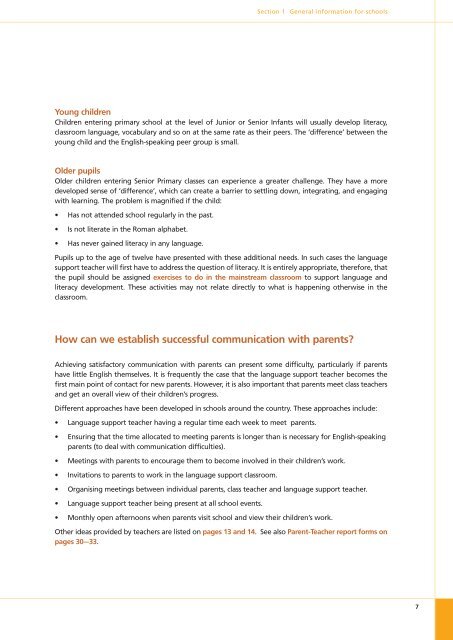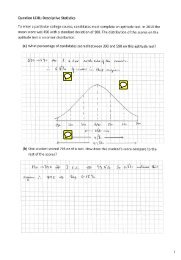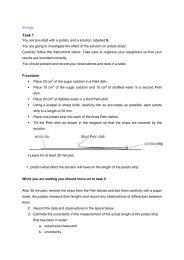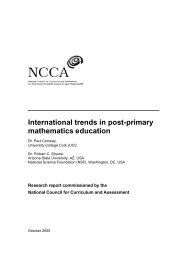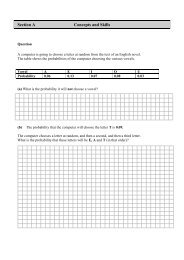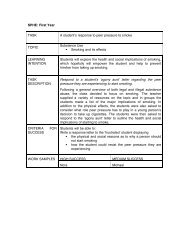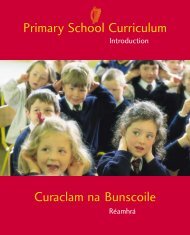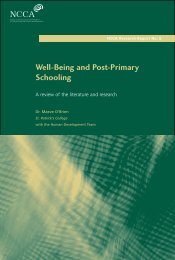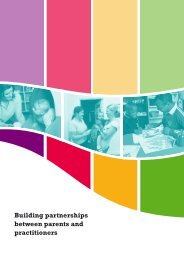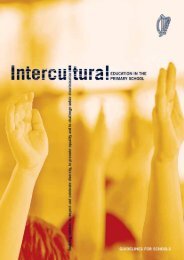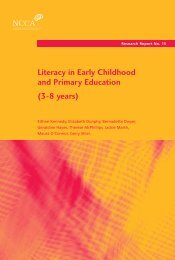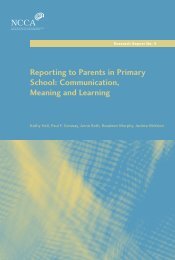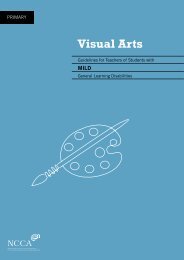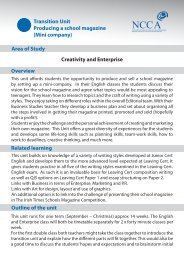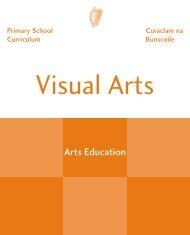Up and Away - National Council for Curriculum and Assessment
Up and Away - National Council for Curriculum and Assessment
Up and Away - National Council for Curriculum and Assessment
Create successful ePaper yourself
Turn your PDF publications into a flip-book with our unique Google optimized e-Paper software.
Young children<br />
Children entering primary school at the level of Junior or Senior Infants will usually develop literacy,<br />
classroom language, vocabulary <strong>and</strong> so on at the same rate as their peers. The ‘difference’ between the<br />
young child <strong>and</strong> the English-speaking peer group is small.<br />
Older pupils<br />
Older children entering Senior Primary classes can experience a greater challenge. They have a more<br />
developed sense of ‘difference’, which can create a barrier to settling down, integrating, <strong>and</strong> engaging<br />
with learning. The problem is magnified if the child:<br />
Has not attended school regularly in the past.<br />
Is not literate in the Roman alphabet.<br />
Has never gained literacy in any language.<br />
Pupils up to the age of twelve have presented with these additional needs. In such cases the language<br />
support teacher will first have to address the question of literacy. It is entirely appropriate, there<strong>for</strong>e, that<br />
the pupil should be assigned exercises to do in the mainstream classroom to support language <strong>and</strong><br />
literacy development. These activities may not relate directly to what is happening otherwise in the<br />
classroom.<br />
How can we establish successful communication with parents?<br />
Achieving satisfactory communication with parents can present some difficulty, particularly if parents<br />
have little English themselves. It is frequently the case that the language support teacher becomes the<br />
first main point of contact <strong>for</strong> new parents. However, it is also important that parents meet class teachers<br />
<strong>and</strong> get an overall view of their children’s progress.<br />
Different approaches have been developed in schools around the country. These approaches include:<br />
Language support teacher having a regular time each week to meet parents.<br />
Ensuring that the time allocated to meeting parents is longer than is necessary <strong>for</strong> English-speaking<br />
parents (to deal with communication difficulties).<br />
Meetings with parents to encourage them to become involved in their children’s work.<br />
Invitations to parents to work in the language support classroom.<br />
Organising meetings between individual parents, class teacher <strong>and</strong> language support teacher.<br />
Language support teacher being present at all school events.<br />
Section 1 General in<strong>for</strong>mation <strong>for</strong> schools<br />
Monthly open afternoons when parents visit school <strong>and</strong> view their children’s work.<br />
Other ideas provided by teachers are listed on pages 13 <strong>and</strong> 14. See also Parent-Teacher report <strong>for</strong>ms on<br />
pages 30-–33.<br />
7


